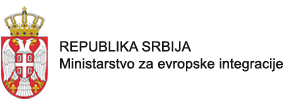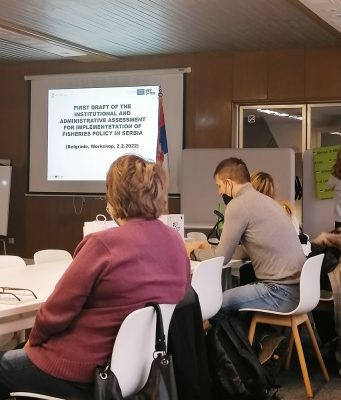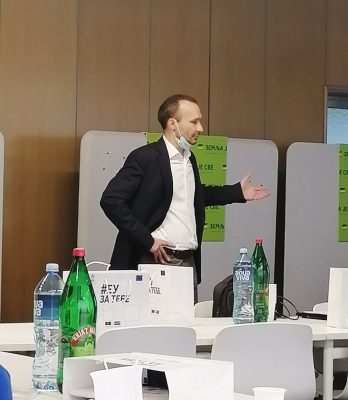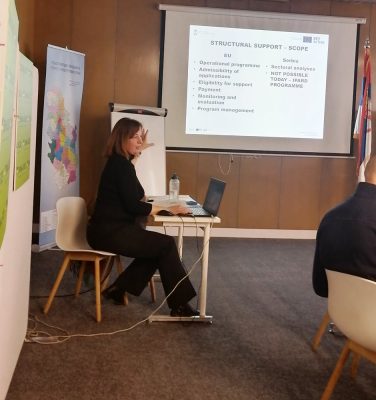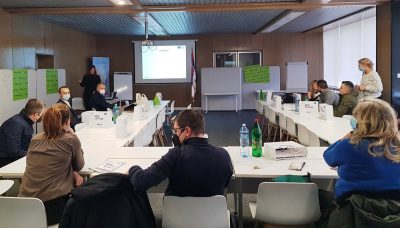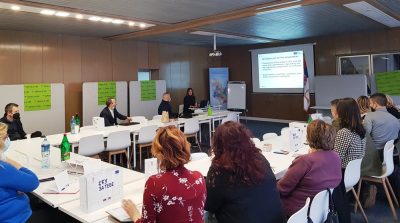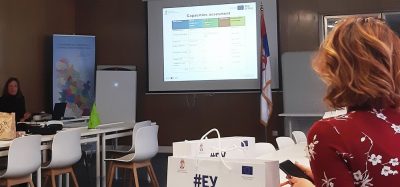Chapter 13: Capacity needs assessment for implementation of fisheries policy

The first draft of the assessment of institutional and administrative capacities required for the implementation of Chapter 13 (Fisheries) in Serbia was prepared with support of the PLAC III project.
Serbia has opened the Negotiating Chapter 13 in June 2018. For the temporary closure of the chapter, a benchmark has been set saying that Serbia should “present an action plan that will ensure full compliance with the requirements of the EU legislation by the date of accession, in particular regarding organisation of the markets, aquaculture, data collection and control measures against illegal, unreported and unregulated fishing”.
The action plan will be the main instrument for the on-going process of alignment of national legislation and the Union acquis in the area of fisheries. Since Serbia does not have access to the sea, the substantial part of the fisheries acquis will not require implementation efforts. Certain measures will however need to be implemented and national legislation adapted to ensure the correct application of the Union acquis.
Project expert Mirta Novak presented a draft assessment report of institutional and administrative capacities needed for implementation of the Union acquis relevant for the Republic of Serbia at a workshop held in Belgrade on 2 February 2022. The description of posts and institutional needs was given for all seven segments of the area (market organisation, structural support, state aid, data collection, resource management, aquaculture and inspection and control).
Regarding the market organisation, no legal act in Serbia is harmonised with the Union acquis, while market standards are harmonised and information for consumers is partially harmonized. At present, structural support is not available to Serbia, which receives support to the agriculture through the IPARD programme. The sectoral analysis for the IPARD III programme showed that for measure 1 (aquaculture, investments in physical assets) there are 140 potential beneficiaries, while for measure 3 (processing, investments in processing and marketing) there are 40 potential beneficiaries in Serbia. State aid to fisheries may be provided in exceptional cases where it is necessary, may not derogate from the rules on structural aid and may not exceed 2.5% of the Member State’s annual income from fisheries. In the area of data collection and control, each Member State should spend at least 15% of the funds for this purpose.
Novak shared the experiences of Croatia, where the country was represented in negotiations with the EU by the Paying Agency for Agriculture, Fisheries and Rural Development. She pointed out that it is very important to involve the audit agency from the very beginning; the same agency is today in charge of all EU aid funds to Croatian agriculture. She made recommendations for changing the number of employees in the competent Serbian institutions, made after the analysis of the current situation. One of recommendations to Serbia is to include fisheries and aquaculture policy in the title of IPARD management authority and group for programming.
Representatives of the Ministry of Agriculture discussed the challenges and the current state of capacity; apart from them, the workshop was attended also by one representative of the Ministry of Finance, Ministry of Environmental Protection and Statistical Office of the Republic of Serbia.
Photo gallery
Recent Posts

Notice
9. April 2024.

The fourth project brochure published
29. March 2024.

The last meeting of the Steering Committee
28. March 2024.
Negotiation chapters
- Chapter 1: Free movement of goods
- Chapter 3: Right of establishment and freedom to provide services
- Chapter 8: Competition policy
- Chapter 9: Financial services
- Chapter 10: Information society and media
- Chapter 11: Agriculture and rural development
- Chapter 12: Food safety, veterinary and phytosanitary policy
- Chapter 13: Fisheries
- Chapter 15: Energy
- Chapter 16: Taxation
- Chapter 27: Environment
- Chapter 28: Consumer and health protection
- Chapter 32: Financial control
- Chapter 33: Financial and budgetary provisions
